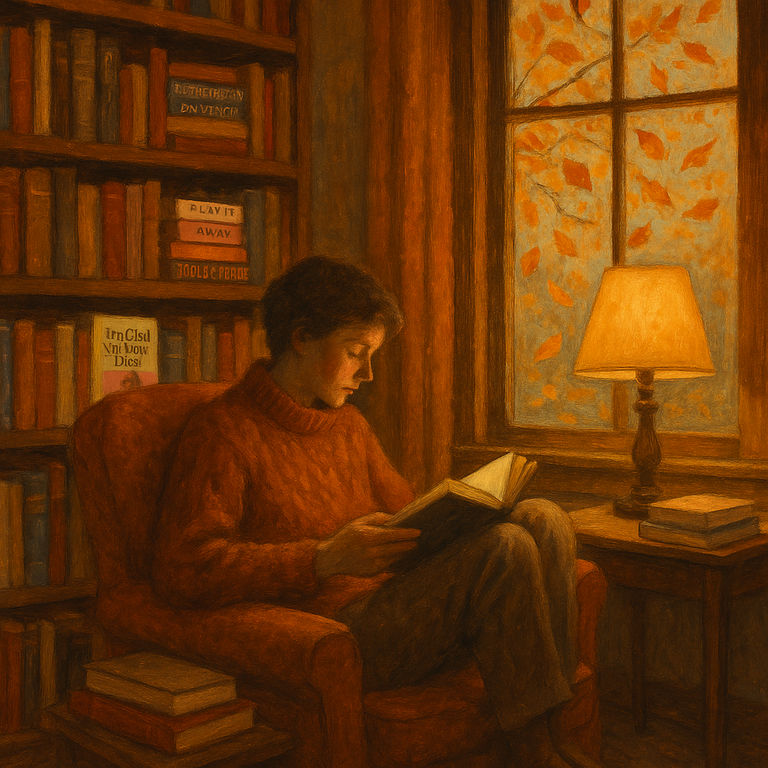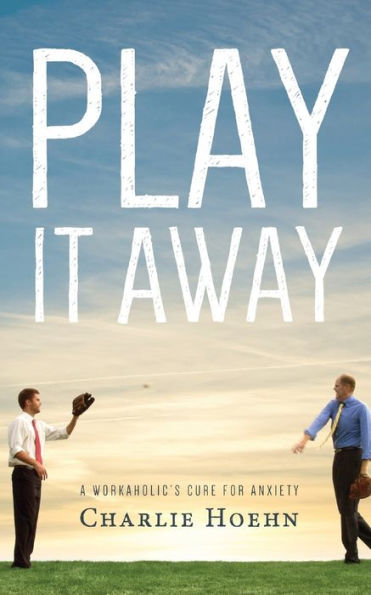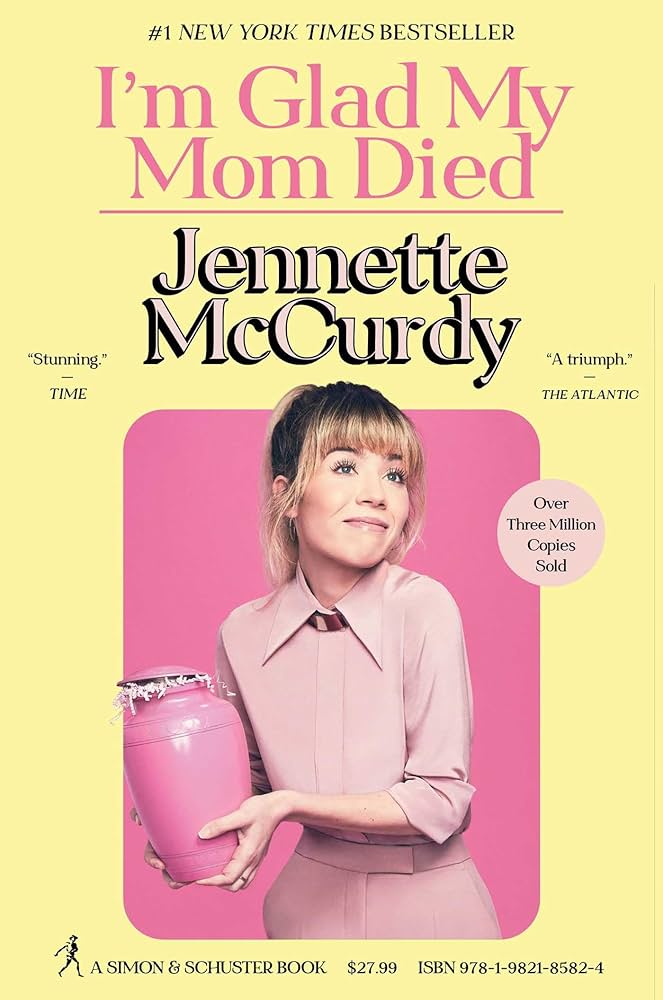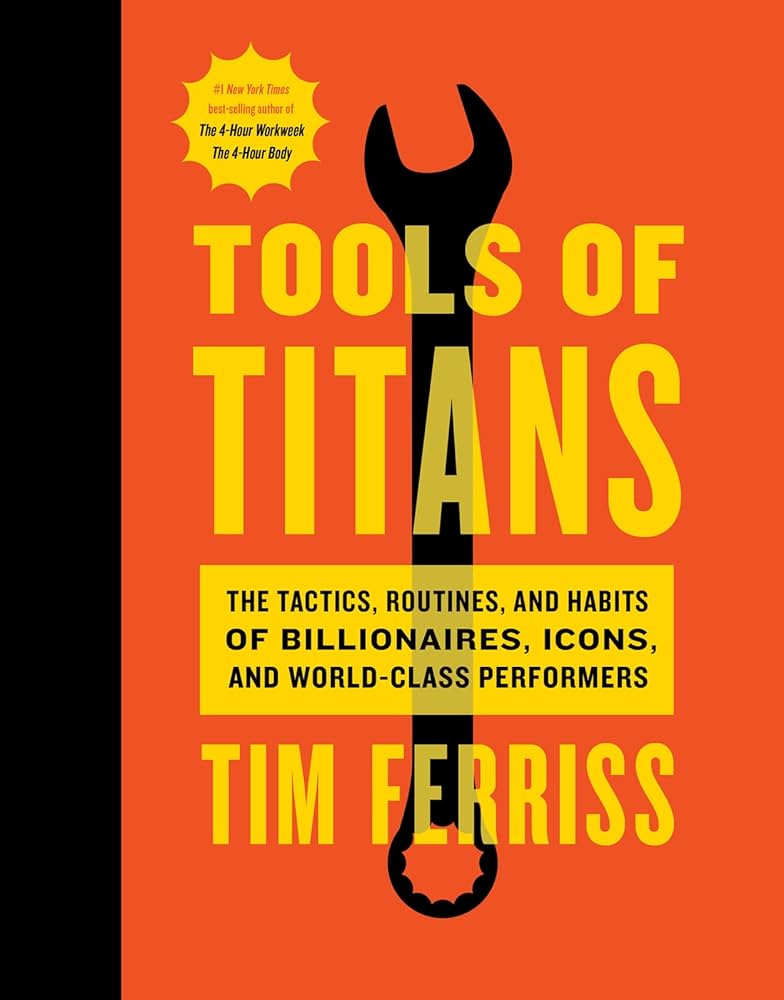The intersection of tools, introspection, and discovery
An annotated reading of the books I finished in October 2025.

Fall plans are in motion, leaves are rustling, and (honestly) I’ve got no idea how to thread the needle of coherence in this month’s reading list. But who said the books you read have to be homogeneous in topic or philosophy? I certainly don’t subscribe to that ideology, as you can probably already tell.
Books Read in October 2025
- Leonardo da Vinci
- Play It Away
- I’m Glad My Mom Died
- Tools of Titans
Polymathic peops (pronounced “peeps”)
I’ve read many other titles by Walter Isaacson before, yet this one stands out as the most detailed (even sometimes literal) dissection of the interests of one of history’s greatest polymaths. If you can say one thing with certainty about Leonardo (of Vinci), it’s that he knew what he was curious about and was relentless in his pursuit of knowledge and the necessary skills to satisfy those curiosities. I think this latter point is important to emphasize, because it is a pattern we can all emulate to some degree in our lives: identifying tasks we are good at and for which we would enjoy honing our skills further. Perhaps not coincidentally, this idea ties right into Cal Newport’s discussion of “knowledge work” in So Good They Can’t Ignore You and Slow Productivity. But I think it’s also worth noting that Leonardo, as a true artist and scientist, sometimes was interested in a topic for the sake of discovery and nothing else. To me, that’s a trait that’s also something worth importing into our everyday lives, with a true Leonardo-style litmus test: “Can you describe the tongue of a woodpecker”?

Working for work’s sake
Charlie Hoehn and Tim Ferriss have written extensively on the topic of burnout and working for work’s sake (WFWS), which is often a precondition to burnout. Charlie’s book Play It Away offers readers poignant warning signs to watch for in the face of looming social, somatic, or psychological turmoil that often arises from WFWS. Environments shape habits, which in turn can make us more or less likely to care for our long-term needs such as strong social connections with others and a sense of purpose in one’s life. In this book, Charlie shares several personal accounts of having to rebuild his personal and professional life with intentionality after “auto-piloting” through life following unsustainable work habits.

Sobering stories of childhood abuse
Jennette McCurdy’s memoir I’m Glad My Mom Died is a difficult read, though not necessarily in a negative sense. Simply, the topics it explores are deeply personal yet widely applicable, making it a rare example of a memoir that zooms in on a particular season in one’s life yet repeatedly raises existential (and often hilarious) questions we can all wrestle with lifelong. You can be sure of one thing after finishing this book: the mechanics of childhood matter. In the moment, we can all normalize the contexts we find ourselves in early on, yet it often takes time and new experiences for introspection to take place to help us decide which life practices to carry forward and which to revise or leave behind.

Many lives, many lessons
As a callback to Play It Away, Tim Ferriss’ book Tools of Titans serves as both a support and a counterweight to Charlie Hoehn’s writings, in that it provides several case studies of sustainable as well as borderline disfunctional personal and professional routines that have helped others yield unordinary results in business, art, science, and beyond. There are many conflicting “lessons of life” that emerge from this book, but to me this reflects the nonlinearity of life rather than any particular shortcoming of this book. I’d rather a book simply present many of the personal stories of what has worked in the past to create impact, which is what this one does well. However, one reocurring theme that does emerge from the book is the importance of mindfulness. Without it, it’s hard to imagine many of the interviewees would have been able to execute the vision of what they wanted to create.

Later.
Alex